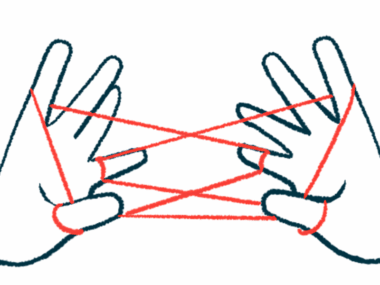FDA Approves a First Drug, Nuplazid (Pimavanserin), to Treat Parkinson’s Psychosis
Written by |

The U.S. Food and Drug Administration (FDA) has approved for the first time a drug to treat the hallucinations and delusions associated with Parkinson’s disease psychosis (PDP). The drug, Nuplazid (pimavanserin), produced by Acadia Pharmaceuticals, had been designated a Breakthrough Therapy by the FDA in 2014.
“Today’s approval of NUPLAZID represents a major paradigm shift in the treatment of Parkinson’s disease psychosis,” Michael S. Okun, MD, medical director of The National Parkinson Foundation, said in a recent news release. “Through its novel and selective mechanism of action, NUPLAZID is a breakthrough treatment that works in a whole new way — treating hallucinations and delusions without blocking dopamine receptors and, therefore, not impairing motor function in Parkinson’s psychosis patients.”
Nuplazid is the first drug approved by the FDA for the treatment of hallucinations and delusions associated with PDP. Its recommended dose is 34 mg, taken orally, as two 17 mg-strength tablets once daily, without titration. The drug preferentially targets 5-HT2A receptors, which are believed to play a critical role in PDP.
“NUPLAZID represents a major medical advancement for patients with Parkinson’s disease psychosis who suffer from hallucinations and delusions,” said Steve Davis, Acadia’s president and chief executive officer. “We are grateful to the many patients and investigators who participated in NUPLAZID’s clinical studies. NUPLAZID represents the culmination of many years of work across our entire organization to bring this novel medicine, discovered by our scientists, to patients in need.”
The National Parkinson Foundation estimates that approximately one million people in the U.S. have Parkinson’s disease. Of these, 40 percent have Parkinson’s-related psychosis, which includes hallucinations and delusions.
“Parkinson’s disease psychosis is a debilitating condition that adds a tremendous burden on the lives of patients already contending with motor issues such as slow movement, loss of balance, and muscle rigidity,” said Todd Sherer, PhD, chief executive officer of the Michael J. Fox Foundation. “It also places an increased burden on caregivers and can lead to loss of independence and nursing home admittance for patients. A therapy to treat the hallucinations and delusions associated with Parkinson’s disease psychosis without worsening motor symptoms can significantly impact the lives of Parkinson’s patients and their loved ones.”
The FDA decision was based on data from a late-stage, six-week, randomized, double-blind and placebo-controlled clinical trial of Nuplazid in 199 patients (Study-020) that indicated the drug could benefit those with PDP. Of the total patients, half were given Nuplazid in addition to other Parkinson’s treatment they were already using, while the rest were given a placebo plus standard treatments. None took any other type of antipsychotic.
Nuplazid was shown to be superior to placebo on the Scale for Assessment of Positive Symptoms-Parkinson’s Disease (SAPS-PD) in decreasing the frequency and/or severity of hallucinations and delusions without worsening primary motor symptoms of the disease. The most commonly observed adverse reactions were peripheral edema and confusional state. These clinical results were published in the journal The Lancet in a manuscript titled “Pimavanserin for patients with Parkinson’s disease psychosis: a randomised, placebo-controlled phase 3 trial”.
Acadia expects Nuplazid to be commercially available in the United States starting in June 2016.





